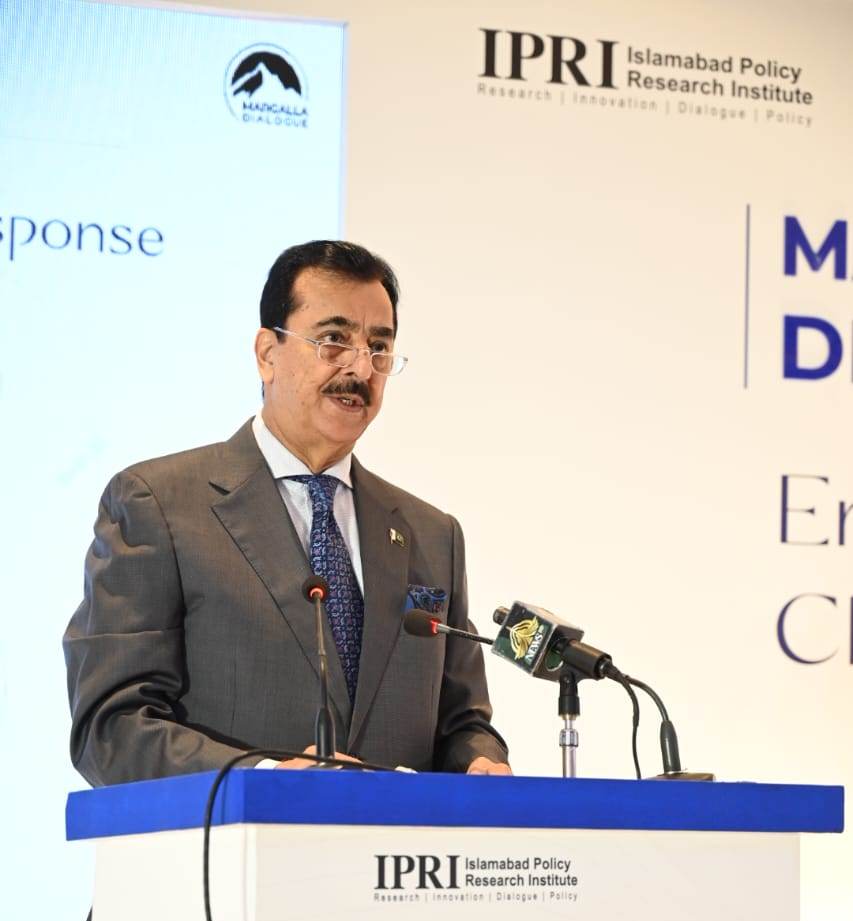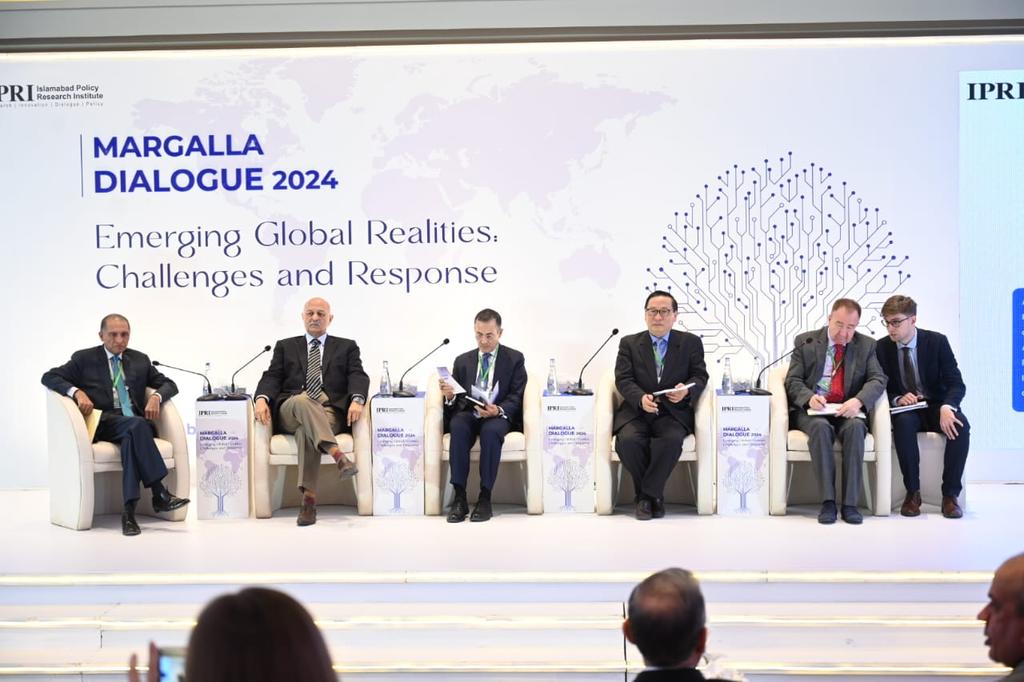
Emerging Global Realities, Challenges and Response
ISLAMABAD: Margalla Dialogue 2024, The inaugural session was addressed by Chairman Senate and former prime minister, Syed Yousuf Raza Gillani. He agreed with the theme of the dialogue and said that new realities are shaping the world at large, and we are living in an era of alliances, including those that are breeding conflict and militarization such as AUKUS and QUAD in the region and beyond.
Gillani said it is multilateralism all around and Pakistan is steering a course of action that is responsible to the core. He also said that this realpolitik is stirring fragmentation and a renewed confrontation between the Great Powers, wherein marginalisation of security and economics are widely evident.
The Chairman Senate said that Pakistan looks forward to more democratisation, and an inclusive order wherein economic resilience and security decorum come to adjust transitional changes.
He referred to the Founder of the Nation, Muhammad Ali Jinnah and said that “Pakistan is the pivot of the world,” and seven our existence at such an important geographic crossroads had proved vitality for our neighbours.
He talked about global tensions echoing in the region, and touch-based on internal security and challenges that Pakistan faces in the form of terrorism and waywardness.

Gillani said that Pakistan’s vision is based on strength and strategic location, along with resilient people and good governance.
He called for creating more social cohesiveness in an attempt to boost investors’ confidence and further democratic credentials. He also underscored the need to re-equip youth with education to make them a capable workforce in a changing and competitive world order.
Margalla Dialogue 2024, a flagship interactive high-caliber intellectual discourse of Islamabad Policy Research Institute (IPRI) opened on Monday at Marriott Hotel, Islamabad. The two-day international conference will deliberate on the theme, “Emerging Global Realities: Challenges and Response,” and will have Four Forums along with special sessions on International Law and Economics.
Earlier, President IPRI Amb. Dr Raza Muhammad introduced the audience about the journey that his think tank has undertaken and the meticulous process of holding one of Pakistan’s finest dialogue, Margalla Dialogue.
He said that Indian arrogance of not talking to Pakistan is at the root cause of problems, and said that we are living in an era where trade with Russia looms large despite sanctions on several member states of the region.
He talked about the emerging realities of CPEC and BRI, and remarked that China is unnecessarily portrayed as a revisionist state.

Dr Raza said that great powers competition is also transforming into conflicts, and the new challenges are drugs and terrorism. He said that Meta, Google and Artificial Intelligence is on the minds of all and sundry, and this phenomenon has transformed the world.
The first distinguished Panel Discussion was titled, “Great Power Competition and its Impact on Peace and Security in Global South,” and was moderated by former ambassador to the US, Aizaz Ahmad Chaudhry, Chairman Sanober Institute, Pakistan. The keynote lecture was delivered by Senator Mushahid Hussain Syed, Chairman Pakistan-China Institute, Pakistan, and former federal minister. Prof. Vali Reza Nasr, Majid Khadduri Professor of International Affairs and Middle East Studies, Johns Hopkins University, USA; Prof. Dr. Igor Panarin Nikolaevich, Member of the Academy of Military Sciences, Russian Federation; and Prof. Dr. Victor Zhikai GAO, Vice President Centre for China and Globalisation, People’s Republic of China were other elite speakers who made a convincing case of the evolving world order. Mushahid Hussain Syed referred to his concept of Three Ds, democratising international relations through equality and the rule of law; demilitarising global interactions to avoid Cold War tensions; and depolarising the financial system to reduce the political power of the US dollar. He believed that there are concerns that the world is slipping into renewed confrontation. Mushahid said that we are living in a world of turbulence and transformation, and quoted a scholar to recall that 300 years of Western hegemony is coming to an end.
Dr Vali Nasr talked about the psychology of sanctions, and referred at length to the trial and tribulations of Obama and Biden administrations in dealing with the trade war with China.
He said that the game is how to maintain access, and there are new emerging realities in the form of Saudi Arabia-USA cooperation, integrating the Gulf with India and Riyadh ties with Washington and Beijing.

Subsequent panel discussions are on: “Regional Security and Development Dynamics of South Asia: Challenges and Possibilities;” and “Pakistan’s Economic Security through Regional Trade,” addressed by Prof. Steve Coll, Senior Editor The Economist, USA; Pravin Sawhney, Editor Force Magazine, India (Security & Stability in South Asia); Amb. Asif Durrani, Former Special Representative for Afghanistan and Senior Research Fellow IPRI, Pakistan (Challenges Emanating from the CASA Region); Mushaal Hussein Mullick, former Special Advisor to the Prime Minister on Human Rights and Women Empowerment, Pakistan (IIOJK Post August 5, 2019: Impact on Peace and Stability in South Asia); Anton Bespalov, Senior Research Fellow, Valdai Discussion Club, Russian Federation (Russia’s Perspective on Developments in Asia and its Relationship with the Global South); Prof. Ahsan Iqbal Chaudhary, Federal Minister of Planning, Development, and Special Initiatives, Pakistan (Strategic Importance of SIFC); Zafar Masud, CEO, Bank of Punjab, Pakistan (Economic Security); Ehsan Malik, CEO, Pakistan Business Council, Pakistan (Driving Economic Stability through Trade and Investment Initiatives) and Dr. Aqdas Afzal, economist, Pakistan.